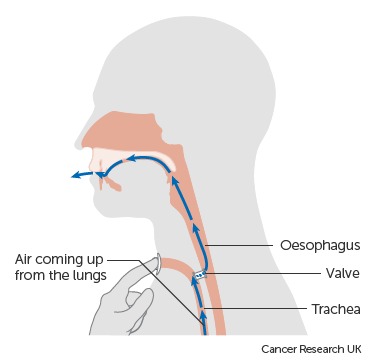
VOICE PROSTHESIS Change
A voice prosthesis is a device used to help patients speak after they’ve undergone a total laryngectomy, which is the removal of the larynx or voice box. This device is typically inserted into a surgically created opening between the esophagus and trachea, known as a tracheoesophageal puncture (TEP). After the laryngectomy, the patient’s airway is separated from the mouth, nose, and esophagus, and they breathe through a stoma, or opening, in their neck. The voice prosthesis allows air to flow from the lungs into the esophagus and out through the mouth, enabling the patient to speak.
However, over time, a voice prosthesis can deteriorate or develop problems, necessitating a change or replacement. This may happen due to regular wear and tear, leakage around or through the prosthesis, or fungal colonization, particularly with the Candida species. It’s also possible that the device might dislodge and fall into the stomach, requiring replacement.
The frequency of change can vary greatly depending on the individual patient and the specific type of prosthesis. Some may last several months before they need replacement, while others may need to be changed more frequently. A specially trained speech-language pathologist or an otolaryngologist typically performs the replacement procedure, often in an outpatient setting.
Changing a voice prosthesis is a relatively quick and usually painless procedure. The clinician will remove the old prosthesis and clean the tracheoesophageal puncture before inserting a new prosthesis. It is important to care for and maintain the voice prosthesis properly to maximize its lifespan and functionality, including routine cleaning and voice therapy exercises.
Post-procedure, patients will continue working with a speech-language pathologist to learn how to best use their voice prosthesis for speech. Dr. Shilpi Sharma Best Prosthetic Doctors in Gurgaon. Ongoing support from a multidisciplinary team, including medical professionals, speech therapists, and psychologists, can help patients adapt and enhance their communication skills, ultimately improving their quality of life after a total laryngectomy.



